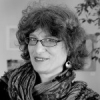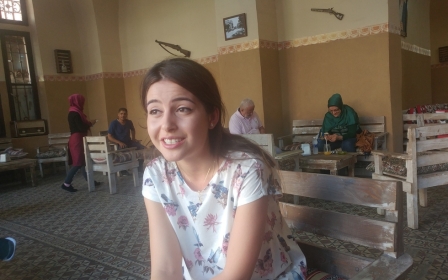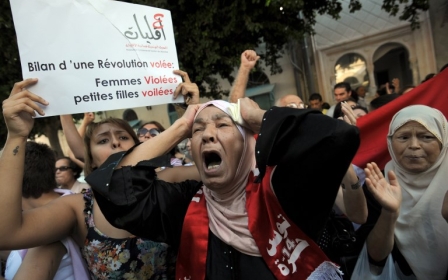#MeToo: From US rape culture to war and occupation, violence against women is universal

In the wake of the Harvey Weinstein rape allegations, a large number of American women have come out and said that they, too, have experienced some form of sexual harassment, sexual assault, or outright rape, at some point in their lives.
We are not safe. The aggressor, the predator, is everywhere, in positions of power over us
The hashtag #MeToo has been trending on social media, as women are reposting a simple message, or choosing to elaborate on the assault they experienced. The point of the campaign is not to give details - I, for example only posted #MeToo - rather, the point is to show how pervasive sexual violence is.
America's worst kept secrets
This simple campaign is indeed showing what we already knew, what is, if you want, one of America's worst kept secrets, that we do live in a rape culture. Sexual harassment of women is all around us, we witness or experience some form of it every single day of our lives.
We have a president who, while a candidate, was exposed bragging of being a sexual predator with no accountability, and who still got elected president of the USA.
He can't resist beautiful women, as he once put it. But it's not only "beautiful women" who get assaulted, whatever one's definition of beautiful. It's also "ugly" women, young skinny girls, heavy-set old women, it's every woman.
And still, somehow, when we analyse the circumstances of women in the US we see them as emancipated, free, powerful, because we focus only on the micro-environment, namely those factors that impact the smaller image, a decontextualised image, really: Can they wear what they want, drive a car, travel alone, without a husband's "permission", do they work outside the house, etc.
The answer is that yes, they do, and so, despite the macro-environment of extreme sexual violence, a pervasive culture of rape, we see them as "liberated", without noting that the overall culture they function in has a systematic apparatus of gendered disempowerment, which works as a counterweight to these "freedoms".
American women live in justified fear of assault, of rape, and for the many millions of us who have been assaulted, even if we repress the memory itself, as we go about our daily lives, we are still living with the experience, and with the "lesson" the experience is designed to teach us.
We are not safe. The aggressor, the predator, is everywhere, in positions of power over us. We have internalised that message, with all its oppressive weight, and with the myriad limitations it puts on us.
Arab women
And yet Western culture, including the majority of Western women, then look at Arab women, and somehow find it important to tell Arab women that they (Arab women) are oppressed, that Arab culture is anti-feminist, and that they need to be saved.
But just as we need to look at the macro-environment for Western women, so it is incumbent on us to look at the larger image for Arab women.
Today, when we think of strong Palestinian leadership, the kind of leadership that can get us out of the deadly morass we have wallowed in for too long, the names that come to mind are mostly women, mostly younger.
They include Khalida Jarrar in Palestine, and Noura Erakat in Washington DC, both human rights activists and lawyers, Ahed Tamimi, a teenager whose courage when confronting the Israeli occupation soldiers, and her articulate analysis of life in Palestine have made her a role model for many young Palestinians.
The challenges of Arab women are due to the hypermilitarism of the region, a hypermilitarism that is aggravated by US intervention and Israeli occupation
There is also Dima Khalidi, founder and director of the Chicago-based Palestine Legal law firm, which defends activists for Palestinian justice, Izzadine Mustafa in New York and Haneen Maikey in Palestine, both queer activists who understand that gender justice cannot exist in a vacuum, but must happen in a decolonial context, and many, many more.
Indeed, what all these activists and organisers have in common is a critical grasp of the broader context of oppression.
Obviously, we have our challenges, they are immense, but overall, our challenges cannot be defined solely or even primarily by the conservatism of our culture.
Overall, the challenges of Arab women are due to the hypermilitarism of the region, a hypermilitarism that is aggravated by US intervention and Israeli occupation. And yet, we are all trained to look only at the micro-environment, not at the larger picture.
Social and political environment
When Westerners look at an Arab woman, a Muslim woman, they see a veiled woman, a woman in a chador, and they see oppression. They do not look at the broader picture, the overall social and political environment that the veiled woman functions in.
Just as, when we look at a Western woman in college, or an actor in Hollywood, or an Olympic gymnast, we see empowerment, rather than the overall social environment this Western woman is surviving in, whether it be rape culture in Hollywood, in sports, or on college campuses across the nation.
And yet, if we look at who is denying Palestinian women their most basic human rights, we realise it is not "Islamic fundamentalism". Looking at Malak Mattar, for example, the extremely talented young painter who lives in the Gaza Strip, we learn that she qualified for a scholarship, but Israel would not allow her to leave the Gaza Strip.
Two years earlier, another brilliant teenager, Amal Ashour, also aced her exams, and qualified for a scholarship to a university in the West Bank, but Israel denied her permission to leave the Gaza Strip because education does not qualify as a humanitarian exception to the siege on Gaza.
Israel believes that universities in the West Bank are breeding grounds for militancy, and so does not allow students from the Gaza Strip to study there. As I discussed Mattar's and Ashour’s circumstances with a group of white feminists here in the US, one correctly observed "they are political prisoners".
Indeed, they are, and the jailer is Israel, not Arab conservative values.
War, occupation and a hypermilitarised society
If we are to properly understand a situation of injustice, it is incumbent on us to look at the meta context, not just the micro-environment. Yes, we can blame Hamas for disempowering women in the Gaza Strip. But it is not Hamas that is denying Malak Mattar the opportunity to study abroad, it is not Hamas that did not allow Amal Ashour to leave the Gaza Strip.
Today, throughout the Arab world, women's circumstances are extremely challenging. But if we want to help, we must address the broader image, the macro environment, and that macro environment is the political context we live in, one of war, occupation, a hypermilitarised society.
In the case of Palestinian women, it is Zionism, with its ramifications impacting every single aspect of every Palestinian's life, that is the culprit
Because veiled or not, secular or religious, even if we had the full support of our own community, our rights are still violated by Israel, and its sponsors and political allies.
Just as the #MeToo moment will hopefully provide an opportunity to reflect on and effectively address the broader climate of sexual violence in the US, so the individual cases of women's oppression in the Arab region should allow for an opportunity to examine the larger environment of oppression.
In the case of Palestinian women, it is Zionism, with its ramifications impacting every single aspect of every Palestinian's life, that is the culprit.
- Nada Elia is a Diaspora Palestinian writer and political commentator, currently working on her second book, Who You Callin' "Demographic Threat?" Notes from the Global Intifada. A professor of Gender and Global Studies (retired), she is a member of the steering collective of the US Campaign for the Academic and Cultural Boycott of Israel (USACBI)
The views expressed in this article belong to the author and do not necessarily reflect the editorial policy of Middle East Eye.
Photo: An activist (R) speaks to an Israeli soldier during clashes in the West Bank village of Nabi Saleh, near Ramallah December 11, 2011 (REUTERS/Darren Whiteside)
Stay informed with MEE's newsletters
Sign up to get the latest alerts, insights and analysis, starting with Turkey Unpacked
Middle East Eye delivers independent and unrivalled coverage and analysis of the Middle East, North Africa and beyond. To learn more about republishing this content and the associated fees, please fill out this form. More about MEE can be found here.






